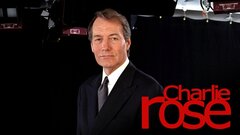Martin McDonagh

Director • Writer • Producer
Birth Date: March 26, 1970
Age: 55 years old
Birth Place: Camberwell, London, England, UK
One of the most acclaimed European playwrights of the late 20th and early 21st century, Martin McDonagh was the author of several Tony-nominated plays, including "The Beauty Queen of Leenane" (1996) and "The Cripple of Inishmaan" (1996) before segueing into a successful second career as a film writer and director. McDonagh's plays, which bristled with nationalist anger and dark humor as they addressed the emotional and political state of Ireland, earned him the praise of critics and theatergoers alike on both sides of the Atlantic. Both were undoubtedly dismayed by his abandonment of theater for film in 2006, but his efforts in that field - the Oscar-winning short "Six Shooter" (2006) and the Oscar-nominated "In Bruges" (2008) - established him as one of the most talented voices in international film. As an author, he returned to the stage with "A Behanding in Spokane" in 2010, his first piece to be set in America.
The Broadway production starred Christopher Walken, who worked for McDonagh again in "Seven Psychopaths" (2012), a bloody black comedy co-starring Colin Farrell, Sam Rockwell and Woody Harrelson. A truly unique voice in both film and theater, McDonagh continued to build his impressive body of work with projects that deftly displayed his humor and ink-black view of humanity.
Born March 26, 1970 in Camberwell, London, England, he was one of two sons born to Irish parents who had moved to England for work. Raised in a South London neighborhood comprised largely of Irish émigrés, the family returned frequently to the Irish town of Connemara, where his father was born. The rocky coastal area would later figure prominently in McDonagh's work. A fan of Al Pacino from TV screenings of his 1970s efforts, McDonagh was drawn into playwrighting by the actor, whom he saw in a production of David Mamet's "American Buffalo." At age 16, McDonagh's brother, John Michael McDonagh, left school and set out to become a writer. McDonagh, himself, would follow suit a few years later, and both would eke out a meager existence funded largely by public assistance while living in the London home of their parents, who had returned to Ireland. McDonagh spent much of the next few years writing stories and plays while supporting himself with a variety of low-paying jobs.
Some of the stories were later sent to film studios for adaptation as short films, while others found their way to Australia, where they were produced as radio plays.
In 1994, John Michael McDonagh left England to study screenwriting in Los Angeles, while his younger brother remained behind and launched into a nine-month writing session which eventually yielded his first stage play, "The Beauty Queen of Leenane." A drama shot through with streaks of dark comedy, the play concerned an unmarried 40-year-old woman whose combustive relationship with her mother becomes disastrous when the older woman thwarts her one chance at love. All of the qualities that would become hallmarks of McDonagh's later work - the gallows humor, an unerring ear for the dialect and language of the working-class Irish, and sharp social commentary on the state of Irish life - were present in this early effort, which was shopped to various theater groups until finding a patron in the Druid Theatre in Galway.
Its premiere in 1996 was met with critical acclaim and an award for Most Promising Playwright from the London Evening Standard. "Beauty Queen" eventually made its way to Broadway, where it received a Tony nomination in 1998. Meanwhile, McDonagh was hard at work on its follow-ups, as "Beauty Queen" was the first of a trilogy of plays set in Connemara and County Galway. The year 1997 saw the release of "A Skull in Connemara," about a man, whose job is to smash the skulls of remains interred in an overflowing graveyard, including that of a former wife he killed years before. It was followed by "The Lonesome West" (1999), an adaptation of Sam Shepard's "True West" that concerned a pair of bickering brothers; one of whom has accidentally murdered their father. It too netted a Tony Award for Best Play.
The "Leenane Trilogy," as it was later known, ran concurrent with another trio of themed plays, "The Aran Islands Trilogy," was set on a trio of tiny islands near Connemara in Galway Bay. The region served as the location for Robert Flaherty's 1934 documentary "Man of Aran," which chronicled the hard-scrabble lives of its inhabitants. The film, in turn, served as inspiration for the first of the Aran Islands plays, "The Cripple of Inishmaan" (1996), which focused on a young disabled man who seeks a role in the Flaherty film in order to win the heart of a local girl. The following year placed McDonagh in the English theater history books: "Cripple" was produced for the London stage at the same time the Leenane Trilogy was running at the Royal Court Theatre, which made him the first playwright since Shakespeare to have four plays on English stages at the same time. A year later, he again gained headlines for having two plays, "Cripple" and "Beauty Queen," running simultaneously on Broadway.
McDonagh's second play in the Aran Islands trilogy ran into trouble prior to its debut in 2001. "The Lieutenant of Inishmore" raised eyebrows over its main character, a leader of an Irish Nationalist group so extreme that even the IRA refused to associate with him. The play's mix of gruesome violence and dark humor forced many theater groups to keep it at arm's length, which resulted in McDonagh's public announcement that he would cease writing until the play was produced in London. Fortunately for theatergoers, the 1998 Belfast Agreement, which yielded a cease fire and peace accord between the IRA and British government, inspired the Royal Shakespeare Company to include the play in its 2001 season. "Lieutenant" made its way to America five years later, where its Broadway run resulted in another Tony nomination.
The Aran Islands trilogy never reached its conclusion. Its third play, "The Banshees of Inishsheer," was dismissed by McDonagh and remained unfinished and unproduced. He instead returned to the volume of writing he produced in 1994, from which he took an unpublished play and crafted it into "The Pillowman" (2004), his first story set outside of Ireland. A dark parable about a man questioned by the authorities of an unnamed totalitarian state about the grisly fairy tales he tells his disabled brother, it too was met with critical approval, including the prestigious Laurence Olivier Award for Best Play of the Season. It traveled across the Atlantic in 2005, where the American production received a Tony Award nomination.
Following the release of "The Pillowman," McDonagh announced that he was leaving the theater to concentrate on film. His first effort as writer and director was the short "Six Shooter" (2006), a blood-soaked but humorous story of an encounter between a recent widower (Brendan Gleeson) and a psychotic young man which sets off a chain of violence. An assured debut, it netted McDonagh a mantle of awards, most notably the Academy Award for Best Live Action Short in 2006. His success streak continued with 2008's "In Bruges." A wry comedy about a pair of soulful hit men (Gleeson and Colin Farrell) who hide out in the Belgian city after a hit goes awry, it failed to ignite at the American box office, but McDonagh's script was showered with tributes, including Best Screenplay from the British Independent Film Awards. The film's profile received a major shot in the arm in 2009 when it netted an Oscar nomination for Best Screenplay.
McDonagh returned to Broadway with 2010's "A Behanding in Spokane," a black comedy involving a man (Christopher Walken) who has been searching for his missing hand for 27 years. Walken soon re-teamed with the writer-producer-director for McDonagh's third film, "Seven Psychopaths" (2012). Another exceptionally dark and violent comedy, it followed the travails of a creatively blocked L.A. screenwriter (Farrell) who becomes entangled in his friends' (Sam Rockwell and Walken) dog-napping scheme as they try to avoid the bloody wrath of the pet's protective owner - a vicious gangster played by Woody Harrelson. Although seen only in limited release, the film earned generally high marks from critics - including an Indie Spirit nod for Best Screenplay - with near equal praise being directed at both McDonagh and his talented, game cast.
By Paul Gaita
Credits

The Night Caller

The Banshees of Inisherin: Interview Special

The Banshees of InisherinStream

The Banshees of InisherinStream

The Banshees of InisherinStream

The Game Changers: Oscar Winning Shorts That Shaped Hollywood

Three Billboards Interview Special

Three Billboards Outside Ebbing, MissouriStream

Three Billboards Outside Ebbing, MissouriStream

Three Billboards Outside Ebbing, MissouriStream

Late Night With Seth MeyersStream

Seven PsychopathsStream

Seven PsychopathsStream

Seven PsychopathsStream

The Guard

In BrugesStream

In BrugesStream

Six Shooter




![Martin McDonagh attends the film premiere of 'The Banshees of Inisherin', an American Airlines Gala at the 66th BFI London Film Festival, Credit:Ana M. Wiggins / Avalon (Newscom TagID: ptsphotoshotfour656386.jpg) [Photo via Newscom]](https://media.baselineresearch.com/images/2109104/2109104_small.jpg)
![Martin McDonagh attends the film premiere of 'The Banshees of Inisherin', an American Airlines Gala at the 66th BFI London Film Festival, Credit:Ana M. Wiggins / Avalon (Newscom TagID: ptsphotoshotfour656404.jpg) [Photo via Newscom]](https://media.baselineresearch.com/images/2109082/2109082_small.jpg)
















